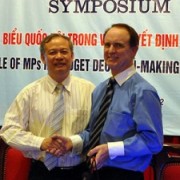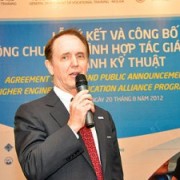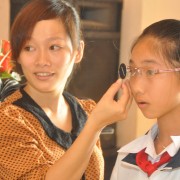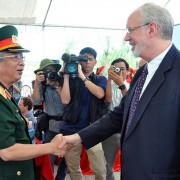The U.S. Agency for International Development (USAID) today announced a $2.4 million grant to Arizona State University (ASU) to support the expansion of the Higher Education Engineering Alliance Program (HEEAP) that leverages public and private sector funding to improve the quality of higher education in the country.

It is a pleasure and a privilege to join you today at this workshop on the role of the National Assembly in Vietnam's budget decision-making and oversight. This workshop and other support we are providing to the Institute of Legislative Studies recognizes that the National Assembly Standing Committee, in 2008, established the ILS as the leading center of research, information and policy analysis for the National Assembly.

HEEAP is focused on improving the quality of Vietnam's engineering education and supporting the country's growing high-tech industry. USAID is pleased to collaborate with academia and private sector partners to assist Vietnam in addressing higher education needs as Vietnam enters a new phase of economic development. To date, over 100 professors have attended training sessions at Arizona State University where they received training on cutting-edge curricula development and teaching methods.

More than 10,000 primary and secondary school students in Kon Tum Province have been screened for vision problems with more than 800 of them receiving eyeglasses under an eye care project just completed with support from the U.S. Government and implemented under the leadership of the Kon Tum provincial departments of Health and Education and Training.

This morning we celebrate a historic milestone for our bilateral relationship. Today's ceremony marks the start of a project between Vietnam's Ministry of National Defense and the U.S. Agency for International Development, USAID, to clean up dioxin contaminated soil and sediment at the airport left from the Vietnam War. Over the next few years, workers will dig up the contaminated soil and sediment and place it in a stockpile, where it will be treated using thermal desorption technology. This process uses high temperatures to break down the dioxin in the contaminated soil and make it safe by Vietnamese and U.S. standards for the many men, women, and children who live and work in this area.








Comment
Make a general inquiry or suggest an improvement.